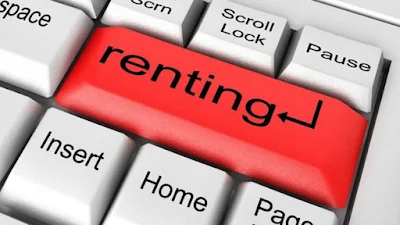What is Renting?
What is renting and why might it interest you? In this article we explain everything you need to know about this type of rental of goods and services that has more and more followers.
Today, the way we approach the acquisition and use of goods has undergone a significant transformation. Among the various options available, renting has stood out as a flexible and attractive alternative in several sectors.
 |
| What is Renting? |
What is renting?
In its essence, renting is a long-term lease contract that allows the use of an asset without the need for purchase. This practice has gained popularity in different industries, ranging from vehicles to technological equipment. Unlike traditional purchasing, where the individual assumes full ownership of the asset, renting offers an alternative in which you pay for the right to use it during a certain period.
Types of renting and their applications
Vehicle rental
Car leasing has been one of the most common and successful applications. Both individuals and companies can access a fleet of vehicles without committing to the purchase. This model offers significant advantages, such as eliminating concerns related to maintenance, depreciation, and high upfront costs.
Technological leasing
In the business field, technological renting has gained ground. Companies can rent computers, servers and other technological equipment instead of investing large sums in their acquisition. This facilitates the constant updating of technological infrastructure without the financial burden associated with an outright purchase.
Real estate rental
Although less common, renting has also been applied to the real estate field. Instead of purchasing property, individuals can choose to rent homes or commercial spaces on a long-term basis, providing flexibility and avoiding the complications associated with ownership.
Renting of industrial equipment
Businesses that require specialized equipment, such as heavy machinery, also find benefits in leasing. This allows them to access cutting-edge technology without incurring high purchase and maintenance costs.
Advantages of renting
Less initial investment
Renting eliminates the need to make large outlays of money at the beginning. This is especially attractive to those who want access to expensive goods without compromising their financial resources.
Flexibility and updating
Renting contracts usually have a fixed duration, at the end of which they can be renewed or exchanged for more up-to-date assets. This provides flexibility and the ability to adapt to the latest trends and technologies.
Maintenance included
In many cases, renting covers maintenance and repair costs, freeing the user from worries related to the condition of the rented property.
Simplified management
For companies, renting simplifies asset management. The leasing company takes care of logistical and administrative aspects, allowing companies to concentrate on their core operations.
Disadvantages of renting
Long-term total cost
Although the monthly payment may be less than the payments of a traditional purchase, the total cost throughout the rental contract may exceed the value of the property. This is especially true in situations where the contract is renewed multiple times.
Lack of property
For those who value direct possession of an asset, renting can be unsatisfactory, since at the end of the contract, the asset is returned and no tangible asset is owned.
Contractual restrictions
Rental contracts often include restrictions on the use of the property, such as mileage limits in the case of vehicles. Failure to follow these restrictions may result in additional costs.
Long term commitment
Although leasing offers flexibility, long-term contracts can create a commitment that, in retrospect, may not be beneficial in changing situations.
In conclusion
Leasing emerges as a valuable option in the current landscape, offering flexibility, simplified management and a more accessible way to access expensive assets. However, as with any financial decision, it is crucial to carefully consider individual circumstances before embarking on a leasing agreement. The key is to evaluate specific needs, weigh the advantages and disadvantages, and make informed decisions that align with short- and long-term objectives.





Comments
Post a Comment